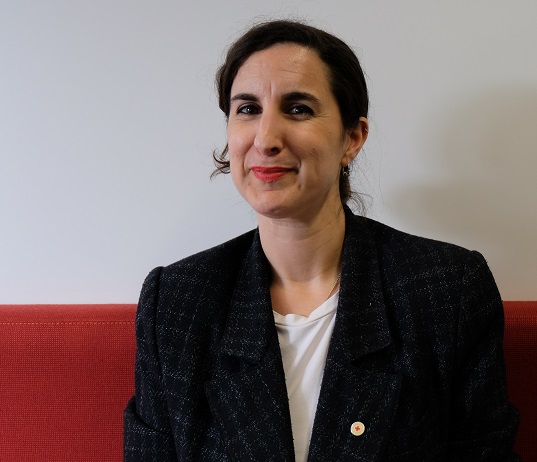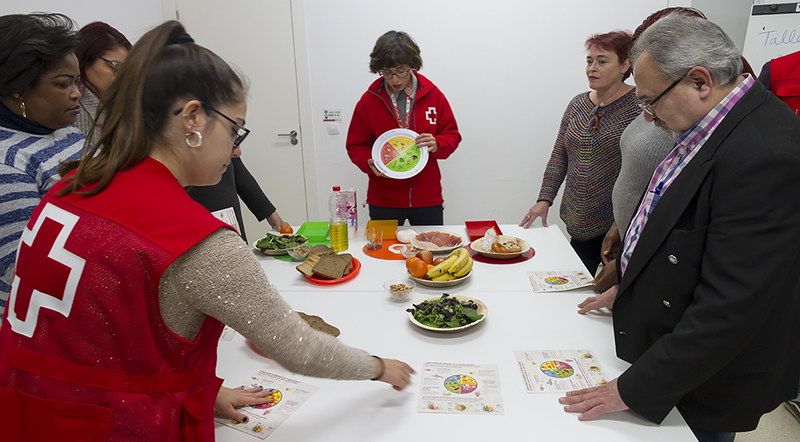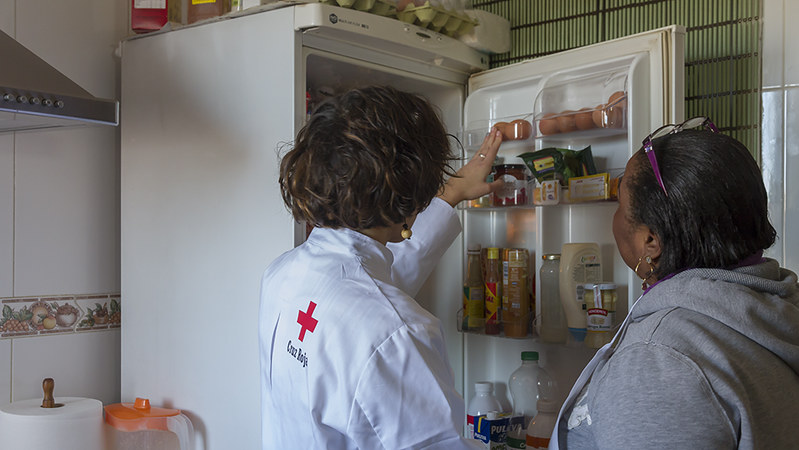Raising awareness about the importance of health

Red Cross, Sandrine Sunha Couto. © RCEU
Supporting EU Member States in their public health mission, National Red Cross Societies contribute to the health agenda at national and European levels. They are therefore well placed to help address future challenges and be a key partner in shaping the European Health Union.
We talked with Sandrine da Cunha Couto, Health Awareness Officer, to learn about the Spanish Red Cross’ work when it comes to health, particularly with regards to prevention.
What is the Spanish Red Cross’ approach to health?
The Spanish Red Cross’ health work is defined in the framework of our Health Plan, which reflects the aim of improving people's health management to help them increase their physical, mental, social and functional well-being.
How do we do it?
We promote healthy habits, in areas such as nutrition, exercise, hygiene, the use of new technologies and emotional health. We discourage people from adopting risky behaviours that can put their health and the health of others in danger, for example while driving or in their sexual relations. We help people to manage their diseases appropriately by identifying diseases as early as possible, ensuring access to treatment and following treatment guidelines. And finally, we inform and raise awareness among the general public about the importance of taking care of their health.
To whom are these different programmes addressed and how do you work with them?
Our health work is divided into three fundamental programmes. The first one is health awareness and prevention, aimed at the population at large. The second provides care for people by helping them to have healthier lifestyles. It is aimed at people for whom we have detected unhealthy habits or risky behaviour. The third programme cares for people with inadequate management of their illness. It is focused on people with diagnosed illnesses, to reduce the negative impacts on their health.
Every person who comes to the Red Cross goes into a general assessment. If we detect health issues, we make a health specific assessment to identify the best approach to the problem.
We are normally faced with a variety of underlying causes, for example:
- "I don't know" – people who do not know what behaviours are inappropriate. This may be due to a lack of interest in the subject or the difficulty of understanding or accessing correct information. For example, people who do not know the negative impacts that a heat wave can have on health.
- "I know, I want to do it, but I cannot" – people who, although they have the necessary information, find themselves in a situation that prevents them from taking measures. It can be due to lack of time or financial resources, mobility problems, or they are not able to receive the care they need because of legal or administrative requirements.
- "I know, I could do it, but I do not” – people who have problems in managing their health despite having the relevant information and the capacity to solve them. Within other causes, it can be due to not being able to appreciate the relationship between immediate benefit and medium and long-term damage, not wanting to assume the cost that a change in lifestyle might entail, or low motivation.

Could you explain more about the awareness raising and prevention programme?
The main goal of this programme is to inform and raise awareness among the general population to contribute to the improvement of individual and community health. We cover different areas: nutrition, physical activity, hygiene, emotional health, sexual health, addictive behaviours, road safety, everyday accidents, non-communicable diseases (diabetes, hypertension, etc.) and communicable diseases (HIV and other STIs, tuberculosis, Hepatitis C). Through our website and social media channels, or with outreach activities (street actions, talks, etc.), we disseminate key information related to different dimensions and aspects of health.
Could you give us examples of concrete activities people can access as part of this programme?
For example, through the initiative “Conscious Eating”(Alimentación consciente) we promote healthy and sustainable eating for the entire population. We share useful tips and tools for acquiring good eating habits, and seasonal, economical and zero waste recipes on a dedicated website.
At the early stages of the COVID-19 pandemic, we developed the service "Red Cross listens to you” (Cruz Roja Te Escucha) to provide psychosocial support and accompaniment. We have kept this service going to respond to people’s diverse psychosocial needs. In addition, we carry out mental health awareness raising campaigns.
Another one of our projects is “Info Prevention” (Info Prevención), an anonymous, confidential and free multi-channel service that allows people to ask questions about HIV, other sexually transmitted infections and tuberculosis by phone, chat or email.

The European Commission is working to build a strong European Health Union, in which all EU countries prepare and respond together to health crises. What should the EU do to make sure the health union is inclusive and resilient?
The EU can play a big role in helping facilitate access to health care and treatment for at-risk and marginalised groups, especially for communicable diseases. Organisations like the Red Cross play a key role in the identification of these people and in the monitoring of their health status. Public institutions can leverage this knowledge.
In Spain we have identified that sometimes patients with chronic diseases do not take their medication as prescribed. This is also a reality in other EU countries. Identifying common health problems at the EU level could contribute to focusing efforts.
For media inquiries, please contact Eva Oyón on: eva.oyon@redcross.eu or +32 2 235 09 22

